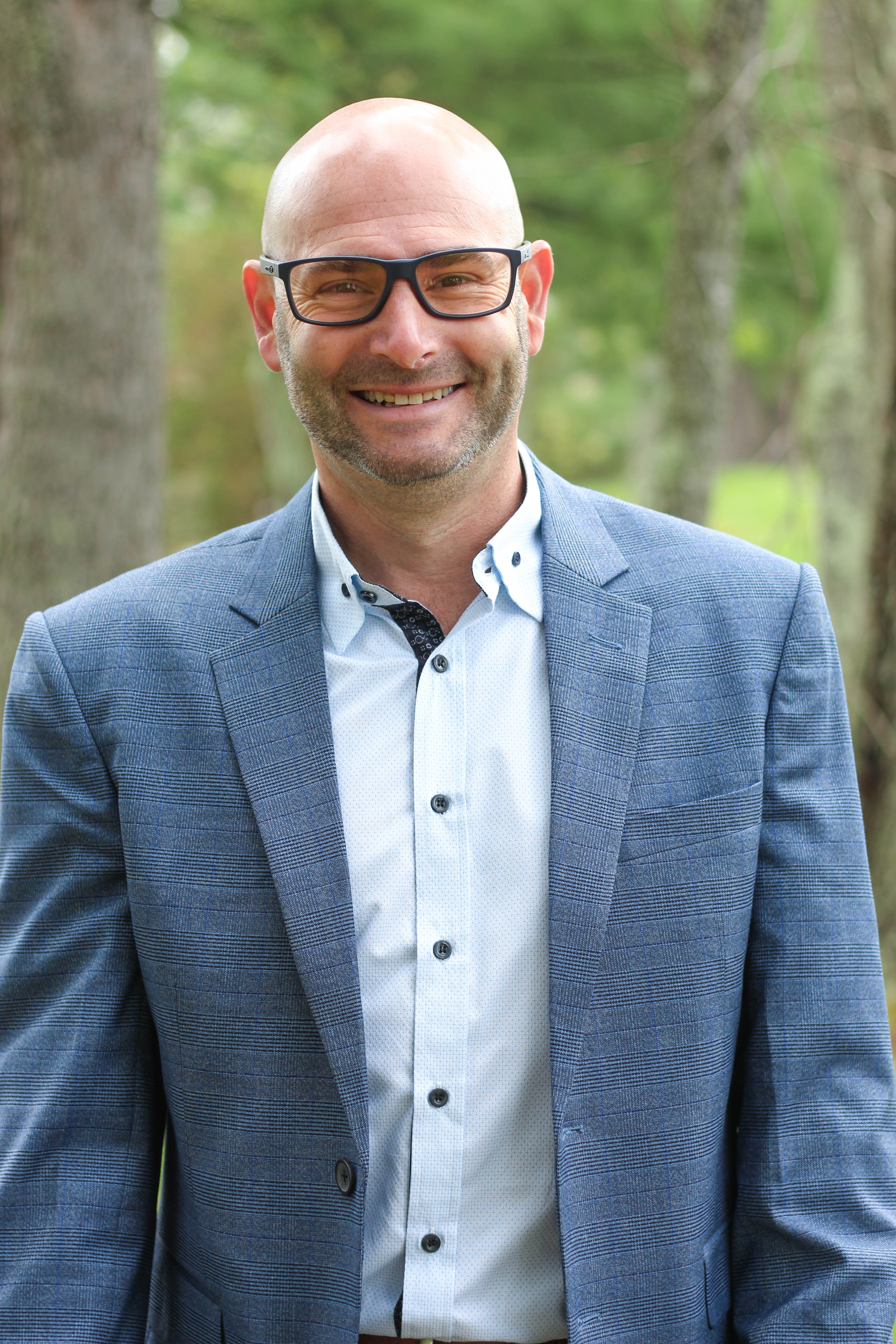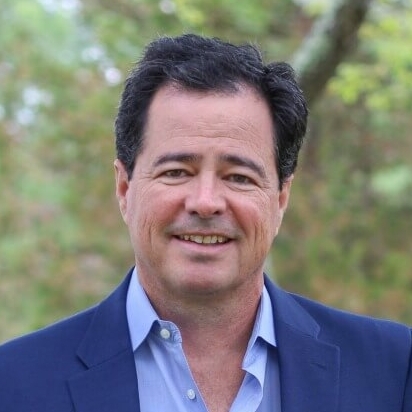

Credit Card Payments without the Processing Costs - Accounting Payments
| |
Note: The Accounting Marketing Doesn't Suck podcast is designed to be heard, not read. However, we understand that some would rather read than listen so this transcript is for you. Transcripts are generated using speech recognition software and may contain errors.
Hugh Duffy: On today's show, we'll be talking to Allan Ratafia, managing partner of Ratafia and Company CPA's, who is also the President of Build Your Firm. I would like to share some insights on Allan before launching into the podcast. Allan is a graduate of New York University with a degree in accounting and a master's degree for college. Prior to opening his own practice, Allan worked for Price Waterhouse and then a small CPA firm in New York City. Like many CPAs, Allan comes from a family of accountants ranging from his father, his brother and his wife Margo.
Unlike most CPA practice owners, Allan operates his accounting practice as a business? So it does not consume much of his time and he's free to operate other businesses and travel abroad.
Welcome Allan.
Allan Ratafia: It's a pleasure to do this podcast with you. Thanks, I look forward to it.
Hugh Duffy: So in your words, can you provide some insights about your CPA practice and how it's unique?
Allan Ratafia: Oh sure. As you know, I run a small CPA firm that focuses on tax savings and preparation in the

New York metropolitan area. We serve mostly service industry clients, really not much retail. You know, we only take on clients that we feel we can save more in taxes than our overall fees. We ask a few key questions in a certain particular order and then we know if it's the right fit, if we can indeed save them more in taxes than our overall fees. We tell them exactly how much we expect their savings to be. And then we present our fee, which always is lower than the savings we generate. The client appreciates this approach and it's transparency and they liked the feeling that we're putting money into their pocket and it doesn't really cost them anything to provide an outstanding service as they see it.
Also, this value is reiterated throughout our relationship, which encourages client retention, referrals and allows us to raise our fees without resistance and we're able to make much more money doing it this way. It's kind of a win win scenario for the client and for us.
Hugh Duffy: You've always had a knack for developing ways to avoid becoming too large and getting sucked back into the practice, like most practitioners. Here are some things that come to mind.
You've always had the ability to take several weeks off from the practice and travel abroad, go to nice places. You've always been able to avoid working weekends and nights for the entire office staff. You've found creative ways to avoid payroll as well.
Where does this drive to avoid the traditional accounting practice come from?
Allan Ratafia: Yeah, I'm glad you mentioned that because that really does outline like who I am and it comes from two things. First of all, when I was 13 my father, who was an accountant, and worked crazy hours and I remember tax season being insane for him. He died on April 3rd and that was obviously crazy tax time of the year. And I sort of learned from that really miserable experience that when I go into business, there's no way that I want to live that type of a life. Not only is it not enjoyable, but obviously not good for health reasons.
So I think that's sort of who I am today. A lot of it was driven by that event. I think also inherently, I have a drive to just try new things. Even if I fail the first time. And this goes through all phases of life. When I try new things, I always have an end game and envision sort of what it's gonna look like when it's completed. I'm willing to take risks, but they're calculated when I try and, and that's how it was when I started my practice. I was a young person and I wasn't exactly sure how to do it. I had experience out there in public accounting, but I figured I can do it better.
And I took the risk and I did it, but it was calculated. You know, I particularly like trying things that others are not doing. I'm not afraid to take those risks, but they need to make complete sense to me. And it did for the way that I started my business and the way that I run things now with you also Hugh at Build Your Firm.
A lot of the things we do and develop are creative and they take risks, but they're always controlled. Initial failure allows me to perfect and bring me closer to my end game. So I'm not afraid of that. And I think that's just, that's just who I am.
Hugh Duffy: One of the things that I want to explore for in this podcast is BizPayO. This is an electronic payment processing system.
Where did the insights for this technology come from?
Allan Ratafia: That's a really great question. It was to solve a problem in my own business.
Initially I wanted a solution to get paid fast at deadlines, like tax season. And when I'm releasing work, I just didn't want to complete work and then wait to get paid. And I didn't want to pay all of these processing fees for the privilege of accepting electronic payments. So it started off with a tool that was just for proprietarily from my own accounting practice.
Then you and I discussed, and we decided to make this available to others and call it BizPayO, which stands for business payments online, but the biz for business, so BizPayO. So that's what we came up with. I wanted a one click feature that I could also easily engage business clients with and then have all of the ongoing payments as part of that engagement automatically set up recurring without me having to key in anything. I really wanted my cashflow to be on autopilot.
So, BizPayO really solved the problem for me initially and I needed to get paid at deadlines without the pressure of billing and recover the costs of accepting electronic payments. But I also wanted the ability to engage clients with one click and get paid as part of recurring with those engagements.
Hugh Duffy: There's so many payments systems out there on the marketplace, can you explain for our listeners how BizPayO is unique?
Allan Ratafia: Absolutely. Well, there are a few key features in BizPayO that integrate into one platform. There's really nothing else on the market that does all of these vital features together. You don't need to work with multiple providers in a fragmented manner and attempt to awkwardly set it up for you.
You just log into a secure, cloud based payment system. It allows you to recover the third party processing fees so you can get paid for credit card and debit card payments at zero net cost.
You can engage clients in a one click manner so you can automatically get paid initially and for all ongoing recurring payments.
If you have existing clients, you can set up the recurring payments in any interval, monthly, daily, quarterly, annually, and recover those third party fees as well.
If you have some old receivable balances, you can send a quick payment link and resolve those amounts.
Also, BizPayO has a Sync Manager that integrates with Quickbooks Online and Quickbooks Desktop, so all payments you receive will automatically sync to your Quickbooks file. It's a really pretty big time saver and it's a three minute wizard to just get it set up and it starts within engagement platform.
One of the core things that I wanted when I set this up was the ability to engage quickly with clients. I didn't want to have to go through the somewhat friction of engaging clients and dealing with that process, so I wanted something that would be easy.
Hugh Duffy: And Biz Peo has an easy to use engagement tool allowing you to engage clients with one click?
Allan Ratafia: All of your client engagements are stored in one place in BizPayO with the details about when you were engaged, the IP address that you were engaged from, your payment terms, everything that you need. It's all in one spot.
You just log into your BizPayO dashboard and click the button and the wizard takes you through each engagement. The wizard intentionally does not force you to use templates for your engagement agreement. Rather you attach your unique agreement and then tell the wizard how much money you want to be paid at inception and ongoing.
Your client receives an email with the ability to review your engagement agreement and click to accept. If they agree, they're brought to your payment page where they can enter their payment details.
Hugh Duffy: Each new client becomes a legally binding agreement that is stored electronically so that you have the client's authorization, location of where they approved, and the payment system runs on autopilot?
Allan Ratafia: Exactly all payments, including the inception payment and the ongoing payments are automatically set up to run on autopilot, including any recovery fee that you choose, when the client accepts their approving both the inception payments, if you have one, and authorizing all future payments per the agreement.
So proper language for those approvals are displayed when they click to accept, as mentioned in of your engagements and their details are stored in one place on this system. So the idea is that we don't want to force you into a template to do this. We want you to use your own engagement agreements for your accounting practice that you're comfortable with and all you do is tell the system how much you want to get paid upfront and ongoing per the engagement agreement that you are providing. And the system just sets it up for you. It's really meant to give you the most flexibility and set up your payments on autopilot.
Hugh Duffy: ACH billing (echeck) as well as credit card and debit card payments. Is that correct?
Allan Ratafia: Yes, right.
The system is designed to allow for both types of payment so you can get paid really for any method across the globe from a customer. So it accepts ACH, what we call each echeck. They're basically the same thing and all card payments.
So when a customer pays you, they're going to be presented with the option to select either an each ACH or a credit card button. So it'd be two buttons displayed.
Their payments from either method are going to fund into your back account.
Hugh Duffy: How does the recovery feature for charge cards, debit card work?
Allan Ratafia: Yeah, well that's really the magic of BizPayO and one of the core reasons why we developed it this way.
BizPayO gives you the ability to set a global recovery fee by either surcharge or convenience fee or neither. Some people don't want to use it. They just like to have the convenience of having an electronic payment system to get paid faster.
Hugh Duffy: What about some of the charges that are often part of online payment processing?
Allan Ratafia: Oh yeah, that's a really terrific question.
There are no monthly processing minimums, no PCI charges, no gateway fees, no interchange fees, so you don't have to account for that. That's great.
Hugh Duffy: What about the sync tool with Quickbooks Desktop and Quickbooks Online? Can you talk about that?

Allan Ratafia: Sure. In the apps section of your BizPayO dashboard, you can simply click and turn on the feature that allows you to sync all transactions right into your quickbooks file. And of course it works with both quickbooks online and quickbooks desktop. All payments, recovery fees and processing fees are automatically pushed into your quickbooks file payments and recovery fees arrive as a deposit into your quickbooks file with all the details of every transaction.
That's amazing Allan. I really want to thank you for openly sharing your story about your accounting practice, and talking about BizPayO.
To learn more about BizPayO, which stands for business payments online. I encourage you to visit the website, which is www.bizayo.com.



